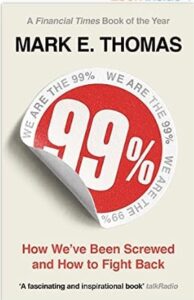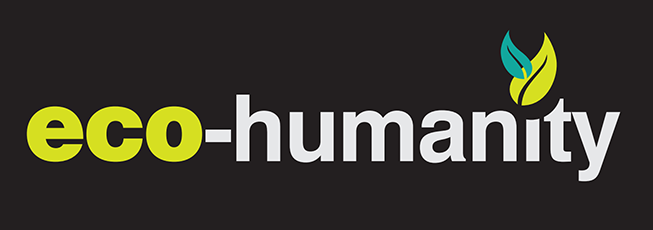 Ever feel that, although you have a vote, nothing you want to happen ever gets done? Elective democracies give most of us a tiny bit of power but absolutely no influence. But what if you were rich? All you would have to do is to offer to make a significant party donation and you would immediately have the ear of those in government.
Ever feel that, although you have a vote, nothing you want to happen ever gets done? Elective democracies give most of us a tiny bit of power but absolutely no influence. But what if you were rich? All you would have to do is to offer to make a significant party donation and you would immediately have the ear of those in government.
Mark E. Thomas in his book 99% claims that we may live in a one man one vote democracy but it is also a one pound one unit of influence government. Putting aside direct corruption, there are so many ways the rich can, and do, influence government outcomes:
- Funding think tanks that espouse their interests
- Conditional party donations (before the Ukrainian war much Tory wealth came from Russians)
- Direct Lobbying through professional lobbyists
- Funding parliamentary pressure groups
- Astro-turfing (pretending their concerns are the outcome of a publicly funded campaign group)
- Media management and ownership (Murdoch is an obvious example)
- Calling directly on friends in government (So many Tories have been at private school or Oxbridge together)
- Threats to withdraw funding for business schemes
- Inducements by promising to support favourable business schemes
- Directly employing parliamentarians or offering them jobs in later life.
It is obvious to all that government policy in the UK is directly influenced by the rich to their own benefit. The situation is worse in the USA. A 2015 study by Princeton University showed that if a policy was popular with the general public, it did not increase its chances of becoming law, only when the rich became involved did laws reach the statute books.
Thomas claims that, in the West, the priority of current government economic policies is firstly to make sure the poorest don’t slip below the poverty line, but secondly to preserve the growth in incomes of the top 1%. The result is that those in middle incomes are steadily becoming worse off and mean incomes are declining. If the current trends continue he claims that by 2050 there will be mass impoverishment. This trend is certainly well-established in the USA. To quote Thomas:
The data show that although the richest are better off and the bottom 20% have been protected, most of the US population are around 20% worse off in real terms today than they were in the year 2000. And this is despite the fact that real GDP has grown by 17% in the same period.
Thomas’s solution? Reduce the power of money to directly influence government by:
- Banning all political party donations by businesses
- Limiting the donations by individuals to that affordable by the ordinary citizen
- Establishing strict controls over lobbying and full transparency over the source of funds of lobbying groups
He has other proposals for: reducing the influence of media owners, ensuring academic studies are not biased by business donations, and establishing a constitutional requirement to govern for the good of all.
Could this be done? It is possible, but it depends on whether a political party could ever become successful without relying on the rich for financial and media support. So far none has tried.
